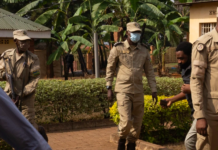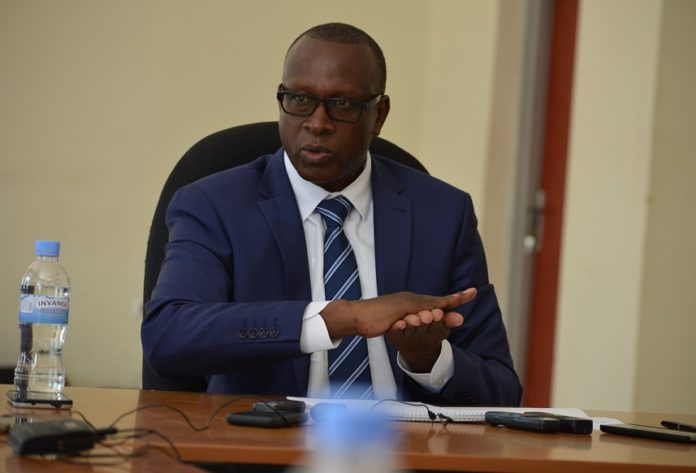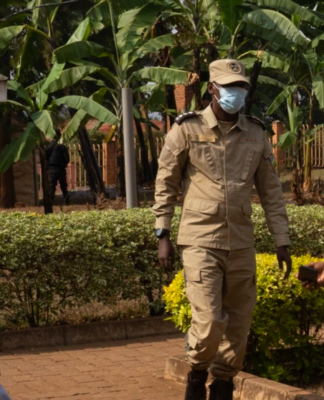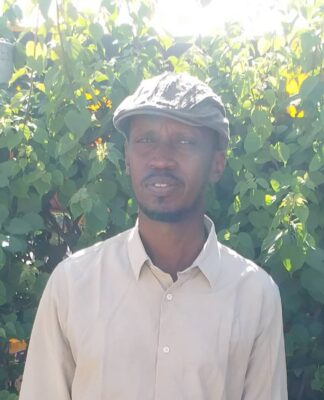By The Rwandan Analyst
The ministry, which was created in July, is set to among others focus on national unity, historical memory and citizenship education. On the 31 august 2021, the prime minister of Rwanda issued a notice on behalf of the head of state appointing a number of staff among whom Dr Bizimana Jean Damascene the current executive secretary of CNLG now charged with the new ministry of unity, reconciliation and civic education lastly instituted. This appointment aroused reactions from both sides, some supporting this nomination, others rejecting it outright. The issue which deserves to be debated hereby is whether the appointee deserves the post given that his profile and political position is already known from the Rwandan public in general and the media in particular.
Background of the minister
Dr. Jean Damascene Bizimana, 49, holds a PhD in Law, Masters and BA degrees in Philosophy and Human sciences, and Religious Sciences and Theology. Bizimana is a lecturer on Genocide at the National University of Rwanda, and an independent consultant and researcher with wide experience and training from various countries. When he came back in Rwanda he was first appointed as a lecturer of international law at Kigali Independent University and left it later after disagreements with students who disapproved his insolence and ignominious insults during the delivery of lectures. He has then worked with RCN Justice and Democracy (an NGO in Rwanda), was a member of the national commission that investigated the role of France in the 1994 Genocide against the Tutsi, as well as the commission that investigated the shooting down of the plane that was carrying former president Juvenal Habyarimana. He is was later elected as senator from the southern province but did not achieve his term because he will be nominated as executive secretary of CNLG replacing the late Mucyo Jean de Dieu.
Analysis
The profile of the candidate does not pose problems because he is sufficiently intellectually trained but his political and social positions officially known push analysts to question the outcomes expected from such impetuous person.
The real meaning of unity and reconciliation in Rwanda
During 1990 -1994 war in Rwanda, there was progressively installed an ethnic hatred between Hutu and Tutsi which culminated in the killings of Tutsi and moderate Hutu by Interahamwe militia of the former regime on one side and thousands of Hutu massacred by the RPA soldiers in a sort of revenge on the other side. To go beyond this interethnic misunderstanding and allow all layers of the Rwandan population to live together in a certain harmony and conviviality, the new master of the country created the National Unity and Reconciliation Commission (NURC). In 1999 this commission held public meetings around the country with various categories of people, for example, women in Kigali, the capital (a meeting I attended). Here people could say what they believed was necessary for reconciliation and what they needed to be able to reconcile. For example, some women said: “I lost everything, including my husband, I need to feed my family and be able to send my children to school”. At that time this cost money at all grade levels. One subsequent positive act of the government was to make education free up to high school. There are plans to expand this through grade 12. Another positive step was to eliminate discrimination, at least official discrimination, in admitting students to schools and universities, as well as in employment.
In a nutshell, unity and reconciliation implies the restoration of the social harmony in the relationships between Hutu and Tutsi.
A minster who has already officially taken his position
You will be recognized by the fruits you produce, dixit the gospel.We can hereby rely the opinion of Dr Kayumba Christopher voiced out on 01/09/2021 YouTube Primo TV that the appointed minister risks to not fulfill the expectations of the new minister if there is taken into account how he was working at CNLG and the fact that he had already officiated his position i.e. support for Tutsi in general and genocide survivors in particular and visceral hatred against the Hutu.
Even if there is useless to check out his ethnic origin in the Rwanda where ethnics are not officially know because not mentioned in identity cards, Dr Bizimana Jean Damascene has sufficiently publicized his hatred against the Hutu and this position is expressed throughout his publications in the Dialogue-version of Kigali and many others such the last one entitled «abahakana jenoside yakorewe Abatutsi mu rugamba rwo kubeshya ko bacitse kw’icumu rya jenoside yakorewe Abatutsi no guhimba indi jenoside itarabayeho» where he was fighting the genocide survivors organization newly created accusing its members of committing genocide ideology and advocating the double genocide whereby he was seemingly moved by the RPF and began to grope and lacking arguments, he stupidly invented groundless charges because we all do know that the members of Igicumbi Association are all Tutsi survivors of the 1994 genocide and the issue hardly handled is that they no longer belong to the leading party as they want to break the chains of discord between ethnic groups for a real reconciliation.
An extremist position already sacrificing academic rules in his PhD thesis
The concerned defended a thesis analyzing the functioning of the ICTR whereby the problem statement was highly appreciating it for not having worked as the international criminal tribunal of Nuremberg and Tokyo which overtly were created to punish the axe forces namely German Nazis and Japan war criminals therefore seen as courts of victors over the vanquished. Unfortunately, he did not succeed to evidence their differences given that although the Resolution UN Security Council Resolution 955 of 8 November 1994 established the International Criminal Tribunal for Rwanda to “prosecute persons responsible for genocide and other serious violations of international humanitarian law committed in the territory of Rwanda and neighboring States, between 1 January 1994 and 31 December 1994.while to our best knowledge, this Court closed its doors and transmitted case files and tasks to the international residual mechanisms for criminal tribunals without having tried any suspects from the former Rwanda Patriotic Army who committed war crimes and crimes against humanity against civil population especially Hutus even if case files were constituted by the prosecution. Indeed, the prosecutor general Carla Del Ponte who was operating before both the ICTY and ICTR will be excluded from the ICTR when Rwanda detected that she intended to prosecute even officials from the Kigali regime and thanks to United States propaganda to cover the regime. Then, what difference between those ad hoc criminal courts created in the aftermath of the second world war which judged Germans and Japanese defeated by the allies and Ex-FAR and the Abatabazi government defeated by RPF? Worse, the mandate of the former courts(Nuremberg and Tokyo) was not mentioning crimes eventually committed by allied forces while knowingly this ICTR deviates its mission by partially judging one party of the people involved by the Resolution.
Conclusion: a useless ministry
Rwandans has been accustomed with institutions which do not satisfy their needs or expectations. Illustrations are numerous. The national unity and reconciliation commission recently issued a barometer which estimated the achievement of unity and reconciliation at 94.7% while really tribal disputes and misunderstandings are still seeable in daily activities and the recruitment of people on higher ranked posts. The contention of double genocide is still open given that many Hutus were slaughtered by RPA soldiers from Kagitumba in 1990 to Mbandaka in DRC during the two successive wars. And world leaders are not blind as the reports clearly prove it; moreover, all is not finished, US,UK and Japan sufficiently aware of those crimes submitted to the UN a petition to consider all the Rwandan victims regardless of their tribal origins. Undoubtedly, the appointment of such an extremist already presages the failure of the mission of this ministry betraying people expectations.





























































